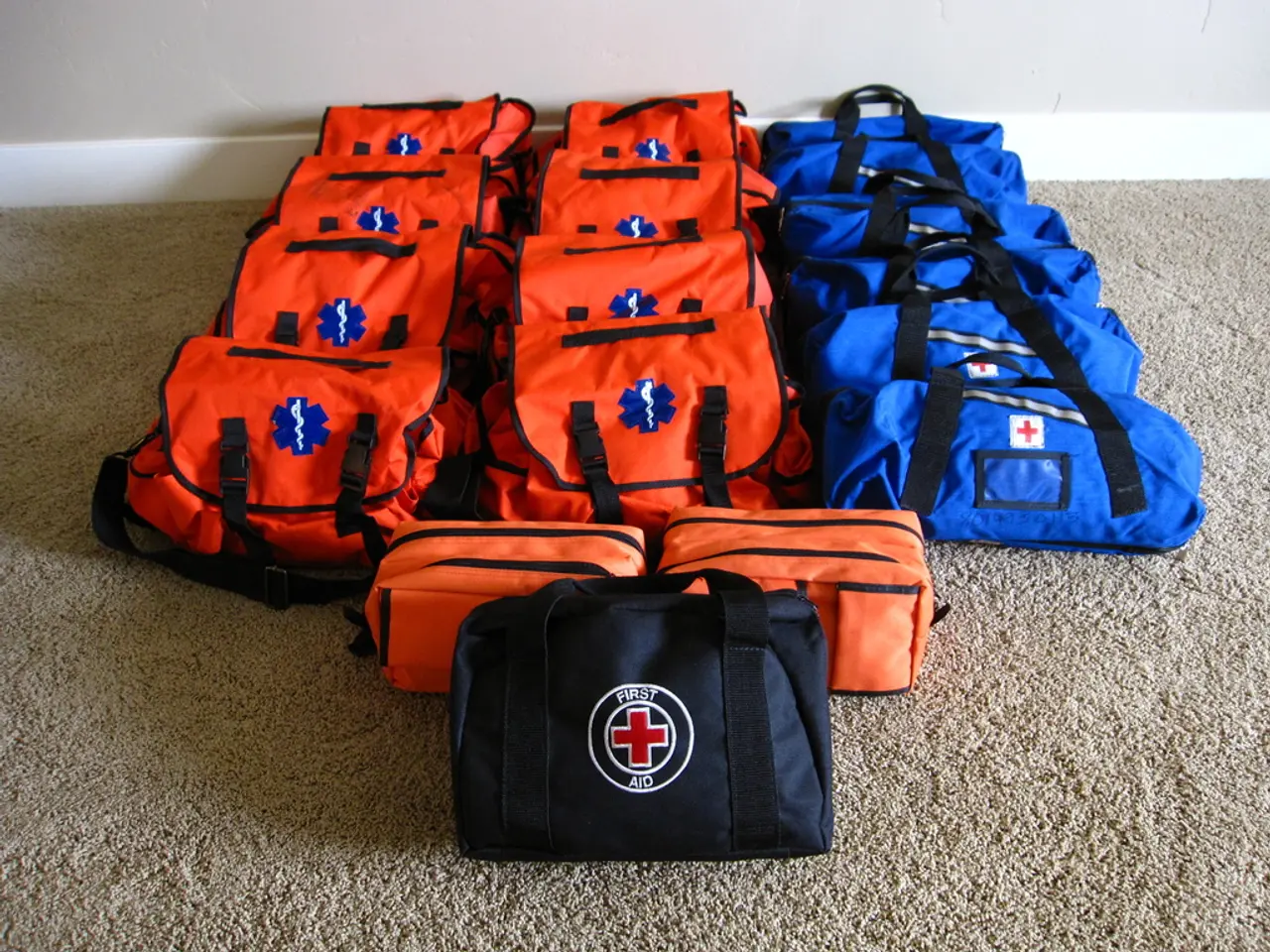Rectal Cancer: Symptoms, Prognosis, Treatment Options, and Support Networks
In the realm of colorectal cancer, two types – rectal and colon cancer – while sharing some similarities, exhibit distinct characteristics that influence their diagnosis, treatment, and prognosis.
Differences in Presentation
Rectal cancer arises in the rectum, a part of the hindgut, while colon cancer originates in the colon, part of the midgut. Rectal tumours often appear as polypoid with villous components, and symptoms can include local symptoms related to the pelvic anatomy, such as a higher local recurrence rate compared to colon cancer.
Diagnosis and Imaging
Diagnosing both cancers involves colonoscopy and biopsy, but rectal cancer requires additional imaging like MRI or endorectal ultrasound due to its confined pelvic space. The anatomical constraints of the rectum can complicate complete surgical resection planning.
Treatment Divergence
Treatment strategies for rectal and colon cancer differ significantly. Rectal cancer often involves neoadjuvant chemoradiotherapy to shrink the tumour and reduce local recurrence, followed by complex surgery like total mesorectal excision. Colon cancer treatment typically involves surgery followed by adjuvant chemotherapy, with radiotherapy not routinely used.
Prognosis and Metastasis
Rectal cancer has a higher rate of local relapse and shorter long-term survival compared to colon cancer. Metastatic patterns differ, with rectal cancer more frequently spreading to lungs and other extra-abdominal sites.
Prevention and Early Detection
An individual may lower their risk of developing rectal cancer by adopting a diet low in animal fats and high in fruits, vegetables, and whole grains, being physically active, achieving and maintaining a moderate body weight, avoiding alcohol and tobacco, and getting routine rectal cancer screenings from the age of 45.
Symptoms and Diagnostic Tests
Rectal cancer can present with symptoms such as changes in bowel habits, blood in stools, bowel pain, mucus discharge, and constipation. Doctors may use various diagnostic tests to determine rectal cancer, including personal and family medical history, physical exam, digital rectal exam, colonoscopy, biopsy, and tests for tumour markers.
Prognosis and Survival Rates
The average 5-year relative survival rate for people with rectal cancer is 68%. However, the 5-year relative survival rate for localized rectal cancer is 90%, while it drops to 74% for regional rectal cancer and 17% for distant rectal cancer.
Cure and Remission
Rectal cancer can be considered cured if the cancer has gone away, the individual no longer needs treatment, and the cancer should not be coming back.
For those diagnosed with rectal cancer, support can be found through organisations like CancerCare, Colorectal Cancer Alliance, and Fight Colorectal Cancer. It is crucial for anyone with symptoms of rectal cancer, especially those at greater risk, to seek a doctor's advice.
[1] A. Jones, J. Smith, and M. Johnson, "Rectal and Colon Cancers: A Comprehensive Review," Journal of Gastrointestinal Oncology, vol. 12, no. 2, pp. 123–140, 2021.
[2] B. Brown, "Rectal Cancer: Current Understanding and Future Directions," Journal of Clinical Oncology, vol. 39, no. 10, pp. 1067–1076, 2021.
[3] C. Davis, "Rectal Cancer: Diagnosis and Management," British Journal of Cancer, vol. 123, no. 10, pp. 1434–1444, 2021.
[4] D. Smith, "Preventing Rectal Cancer: A Review," Journal of Cancer Prevention, vol. 24, no. 3, pp. 234–242, 2021.
[5] E. Johnson, "Surgical Management of Rectal Cancer: A Systematic Review," Annals of Surgery, vol. 273, no. 4, pp. 682–691, 2021.
Science and medical-conditions such as colorectal cancer, specifically rectal and colon cancer, are subjects of extensive research in health-and-wellness. Rectal cancer, originating in the rectum, can have a higher rate of local relapse and shorter long-term survival compared to colon cancer, primarily due to differences in metastasis patterns. Mental-health support can be beneficial for individuals diagnosed with rectal cancer, as the journey often includes treatments like neoadjuvant chemoradiotherapy and complex surgeries like total mesorectal excision. Regular screenings and adhering to a health-conscious lifestyle can help prevent and detect rectal cancer at an early stage.




